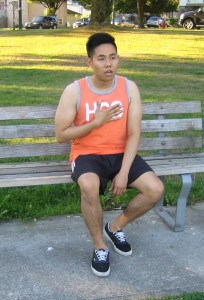Exercise-induced asthma is a common issue among athletes as well as the general population. Individuals who suffer from this condition suffer from shortness of breath when exercising. Take note that an episode can last for 20 minutes or even up to 2 hours. Exercise-induced asthma is considered different from mild, chronic and persistent asthma since it can be treated before exercise. If you want to be prepared on how to help out an individual suffering from an asthma attack, click here.
How exercise-induced asthma occurs?
The condition occurs when exercise triggers the main air passage of the lungs to constrict and inflame. Always bear in mind that the body responds by generating extra mucus, thus making it difficult to breathe. In most cases, athletes breathe using their mouths. The air that enters the lungs is colder and drier unlike with the air that is normally warm in the lungs. The cold air that is inhaled can initiate an attack. Individuals who suffer from this type of asthma are considered to be sensitive to dry air and low temperatures.
Who is at risk for exercise-induced asthma?
Those who are at risk for exercise-induced asthma include athletes who engage in winter sports such as hockey, skiing, snowboarding and figure skating. Even endurance athletes such as those who play basketball, soccer and lacrosse are susceptible to the condition. Individuals who have a family history of asthma and those who are exposed to second-hand smoke and other pollutants are prone to this type of asthma.
Symptoms of exercise-induced asthma
You have to take note that the symptoms of this type of asthma typically manifest within 15-20 minutes after the individual starts to exercise or 5-10 minutes after a short-term exercise has ended.
- Wheezing
- Shortness of breath
- Tightness in the chest
- Sensitivity to cold air
- Coughing
- Unusual feeling of fatigue
Treatment for exercise-induced asthma

Athletes who suffer from exercise-induced asthma can be treated by taking over-the-counter medications or a prescription inhaler. If you suspect that an individual has this condition, it is important to consult a doctor as soon as possible. In most cases, the doctor will prescribe bronchodilators 15 minutes before exercise in order to prevent the symptoms for up to 4 hours.
Preventing exercise-induced asthma
There are various ways in order to avoid the condition from occurring:
- The individual must take medications before any exercise routine to prevent the symptoms from occurring.
- Always warm-up before an exercise routine.
- After an exercise routine, the individual must cool down properly.
- Take part in activities that only require short bursts of energy.
- Instruct the individual to breathe via the nose instead of the mouth.
- The individual must be careful when engaged in activities that require long hours of aerobic exercise.
- Only exercise at a level that is compatible with your fitness level and avoid overexerting in any physical activity.
